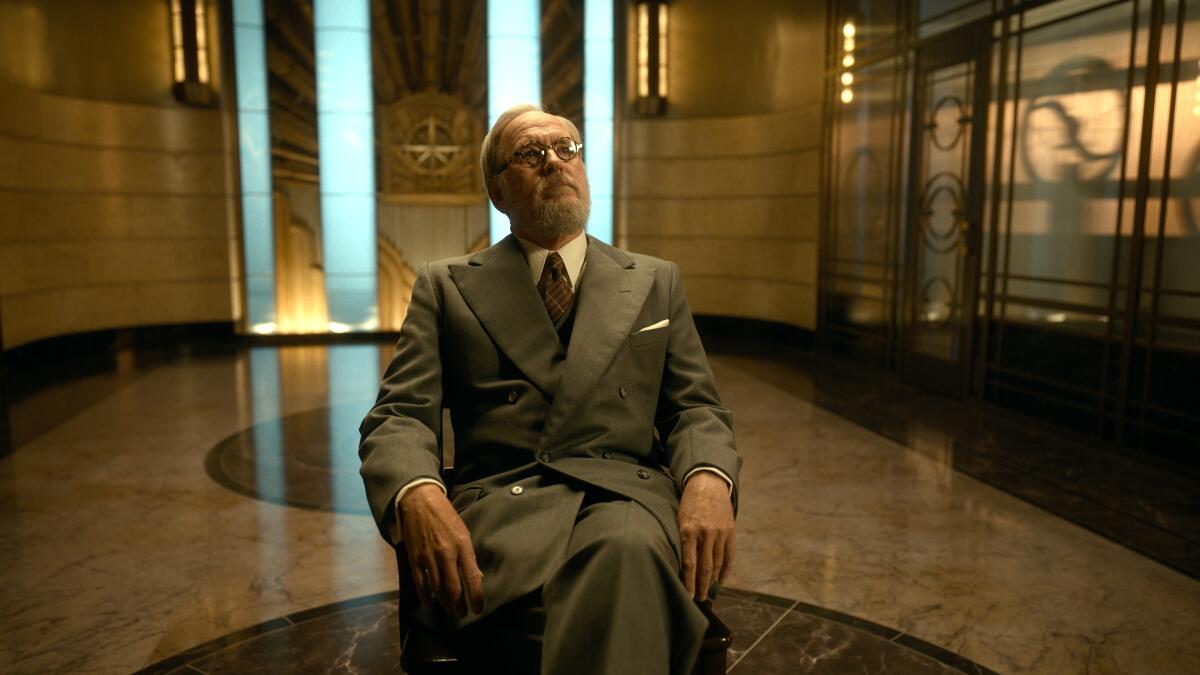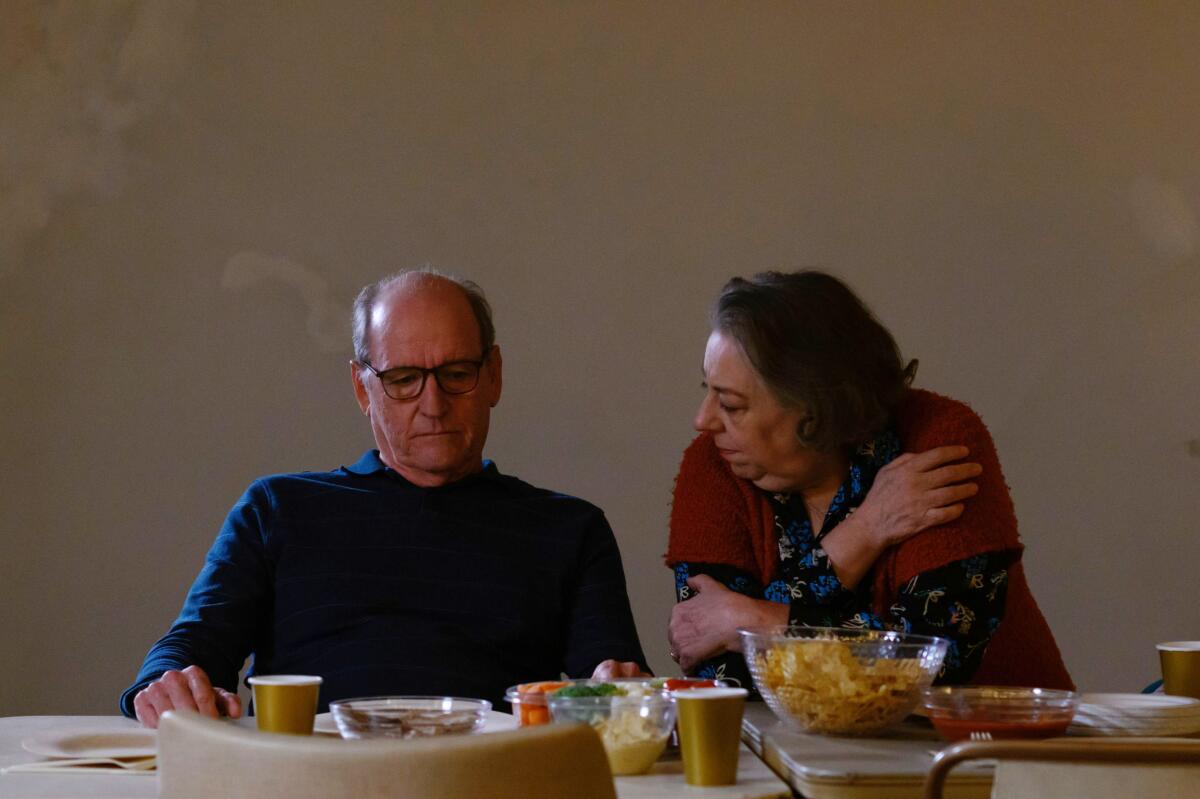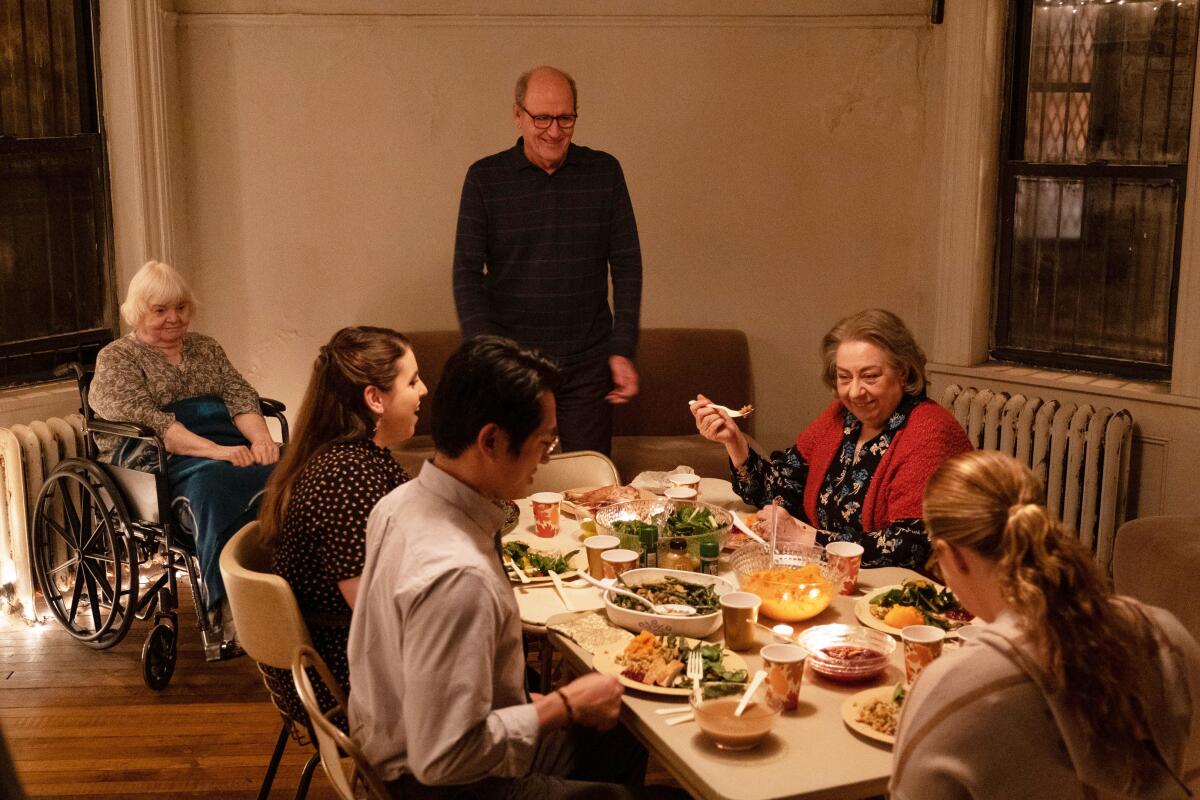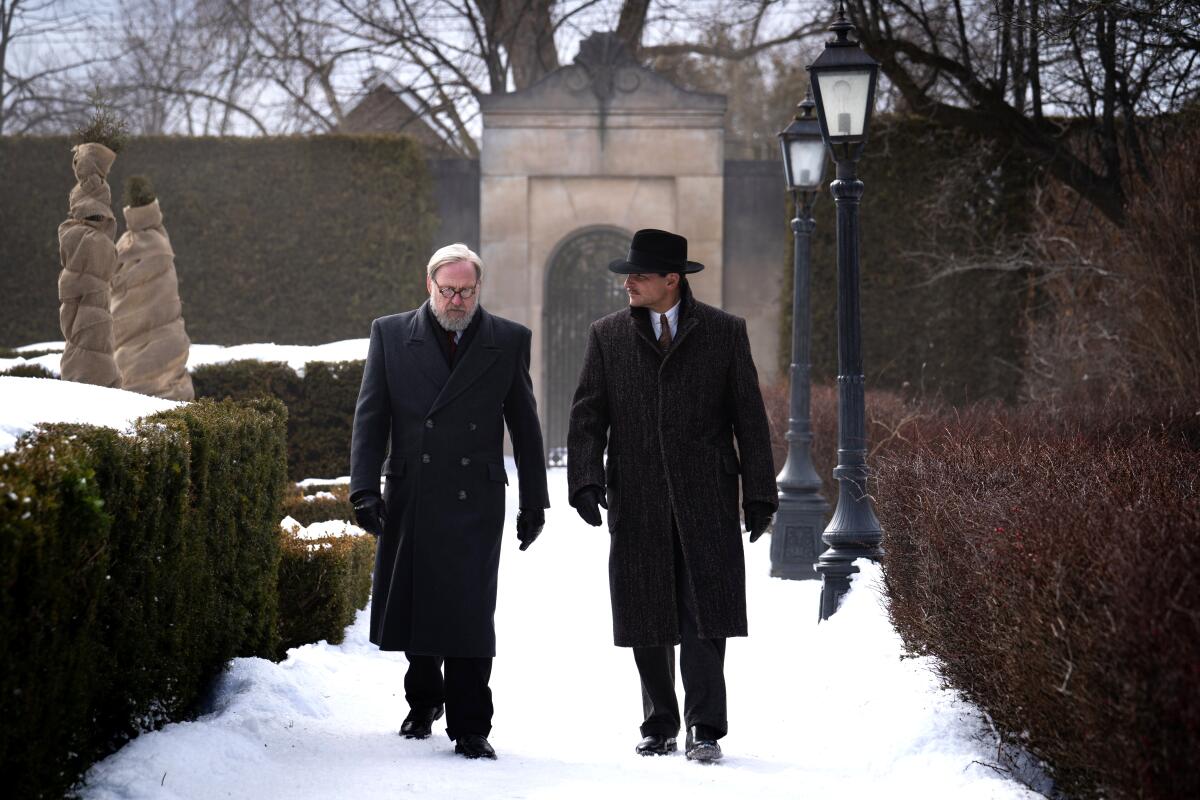Richard Jenkins finds freedom with films big and small

- Share via
Early in 2020, Richard Jenkins had just one scene left to shoot for Guillermo del Toro’s “Nightmare Alley,” playing disturbing millionaire Ezra Grindle opposite Bradley Cooper’s con-man spiritualist. Then the call came. “11:30 that night they pulled the plug,” recalls the two-time Oscar nominee. “COVID was ramping up, everything was closing fast. The producer said maybe we’ll come back and shoot this in a couple of weeks.” Jenkins takes a pause. “Nine months later, my beard had grown really long.”
After taking the longest break of his career, Jenkins came back to the COVID-safe Toronto set and portrayed a villain so intimidating that he propelled the noir thriller into “Nightmare Alley”’s doom-laden third act. How does Jenkins come in cold and summon sheer evil on the spot? “I don’t know,” the actor says with a laugh. “But I never think ill of the people I play. Ezra is incredibly wealthy, he’s done terrible things, but the only thing he wants now is to be told that his long-lost love forgives him. That tells me that this is a man with a conscience.”
Revisiting the film’s violent reveal, Jenkins says “Ezra sees her! ‘Oh, my God! There she is!’ I have no idea what I’m going to do there. Hopefully, something will happen. And then 30 seconds later you find out it’s a fraud. What about that? For an actor, it’s wonderful to play these kind of crazy situations that people put themselves in.”
Speaking from his home in Providence, R.I., where he moved with his wife in 1970 to join the Trinity Theater Company and never left, Jenkins enjoys a ringside seat for two artfully wrought films in theaters this winter. Before filming “Nightmare Alley,” Jenkins appeared in “The Humans.” Adapted by first-time filmmaker Stephen Karam from his own Tony-winning play, the piece casts Jenkins as soft-spoken family man Erik, who barely survives a Thanksgiving dinner from hell hosted by his daughter (Beanie Feldstein) and her boyfriend (Steven Yeun), with wife (Tony winner Jayne Houdyshell), unhappy older daughter (Amy Schumer) and ailing mother (June Squibb) all joining the fray.

Jenkins’ characters in “The Humans” and “Nightmare Alley” bear the burden of shameful secrets. Equally important to Jenkins: Both projects were led by writer-directors who exercise a light touch in their collaborations with actors. Jenkins remembers his introduction to Del Toro in 2017 on the set of Oscar winner “The Shape of Water.”
“When I walked into my character’s apartment for the first time, it was like walking into a piece of art,” says Jenkins, who earned an Academy Award nomination for his role as a lonely advertising illustrator. “Guillermo’s so detailed in the production design, I thought he would want me to do things exactly the way he wanted.” Instead, Jenkins learned, “he wants to see what you bring to this world that he’s created. If something isn’t working and you say, ‘Uh, I want to try something else,’ he’ll say, ‘Absolutely.’ For an actor, that’s a beautiful thing.”

With “The Humans,” Jenkins appreciated the way director Karam’s unobtrusive camera work helped nurture an intimate ensemble vibe that developed during the 28-day L.A. shoot. “Again, it’s about the freedom,” Jenkins says. “When we started shooting, I didn’t know where Stephen was going to put the camera. There wasn’t any ‘On this line you have to turn because the camera’s going to go here and I want to see ....’ None of that got in the way. And that was really freeing, I think, for all of us in that we started just to live our lives in this world.”
“The Humans” culminates with Erik curled up weeping in the corner of a dark, empty apartment. Far from leaving him emotionally drained, Jenkins notes, “it was actually joyous. As an actor, if your performance felt alive, then you’re happy. We shot the movie in sequence, so by the time we got to that scene, I was ready. I just kept thinking, ‘I’m going to lose this family, the worst possible thing that could happen.’ All of a sudden the door opens and my daughter says, “The car’s out here, and we’re waiting for you.’ Which basically says, ‘I still love you.’ That’s a hopeful thing to hear.”
Jenkins, who has two grown children, decided to be an actor at age 10. Raised in small-town DeKalb, Ill., Jenkins went to the movies twice every weekend, awed by the people he saw on the big screen. “I can’t sing, can’t dance, can’t paint, can’t write — acting for me was a way to connect with other people,” he says. He spent the early years of his career imitating actors he admired. That didn’t pan out. “I tried to copy other actors because I thought they were brilliant, but that wasn’t getting me anywhere,” he says. “I was boring myself, and you can just imagine the people watching me, how bored they were!”

The turning point came during a 1978 production of David Mamet’s “American Buffalo.” “It all just felt hollow and fake,” Jenkins recalls. “Backstage I told another actor that I wasn’t going to be the same tonight. He said what are you going to do? And I said I don’t know, but not what I have been doing. I’d bored myself into looking internally at who I was as an actor, and that’s the lesson: You are all you have. You have to believe that you’re interesting enough.”
Post-epiphany, Jenkins became interesting enough to snag a 2006 Oscar nomination for “The Visitor” and an acting Emmy for “Olive Kitteridge” in addition to more than 80 movie and TV gigs. Pulling the stuff of drama from his own experience seems to have turned the trick, he says. “The actor’s job is to live their life in front of the camera as the character. When directors give you the freedom to find your way and live your life, hopefully, the audience will take away more than anything you could ever consciously think of doing. Not that it always happens. But for me, anyway, that’s the goal.”
More to Read
From the Oscars to the Emmys.
Get the Envelope newsletter for exclusive awards season coverage, behind-the-scenes stories from the Envelope podcast and columnist Glenn Whipp’s must-read analysis.
You may occasionally receive promotional content from the Los Angeles Times.







